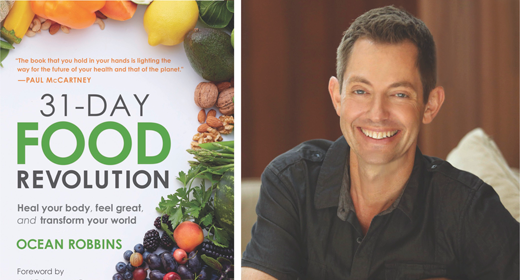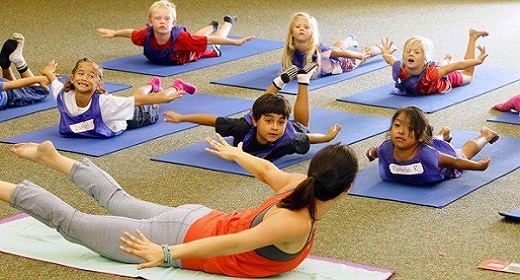By Henrik Edberg: “The ideas I stand for are not mine. I borrowed them from Socrates. I swiped them from Chesterfield. I stole them from Jesus. And I put them in a book. If you don’t like their rules, whose would you use?”
“Who was Dale Carnegie?” you may wonder. Well, he was a guy that was born 110 years ago. He died in 1955. He was a rich man, a very successful man.
He wrote a little book called “How to Win Friends and Influence People“. It went on to sell over 30 million copies. It still sells today and is probably one of the best books on how to improve your social skills.
Carnegie then continued to write more books and to create courses on how to interact with people, on how to make friends and on how to gain influence.
In this article I’ll explore 10 of my favourite tips from Dale Carnegie. And as the opening quote says, these tips have been time-tested for the last few hundreds or thousands of years. They are pretty solid.
And if you want to then you can learn much more about improving your social life and relationships in my Simplicity course (there is a written guide that is close to 50 pages long + a social skills workbook included in that course) and in the 12-week Self-Esteem Course.
1. Create your own emotions.
“If you want to be enthusiastic, act enthusiastic.”
Emotions work backwards too. You can use that to your advantage. If you are stuck in a negative emotion then you can often shake it off. Change your body – how you move, sit and stand – and act as you would like to feel. Enthusiasm and other positive emotions are much more useful and pleasurable for everyone in an interaction. Because…
2. It’s not so much about the logical stuff.
“When dealing with people, remember you are not dealing with creatures of logic, but creatures of emotion.”
This is so key. Logic is good but in the end, in interactions and in life, we are emotional creatures. We send and receive emotions from other people. That is one reason why body language and voice tonality is often said be up to 93% of communication. Now, those numbers were for some specific situations but I still believe that these two ways of communication are very, very important.
The body language and the voice tonality is a bit like the rest of the iceberg, the great mass below the tip of the words we use. Those two things communicate how we are feeling and give indication to what we are thinking. And that’s why it’s important to be able to change how you feel. To be in a positive mood while interacting. Because that will have a great impact on how you say something and how you use your body. And those two things will have a big impact on your results and relationships.
3. Three things you are better off avoiding.
“Any fool can criticize, condemn, and complain but it takes character and self control to be understanding and forgiving.”
Now these things may not be easy to avoid all together. Much of our interactions and perhaps even bonds are created and maintained through those three negative C’s. There is a sort of twisted pleasure in criticising, condemning and complaining. It might make you feel more important and like a better person as you see yourself as a victim or as you condemn other people’s behaviour.
But in the end these three C’s are negative and limiting to your life. Bringing up negative stuff and wallowing in it will lower your mood, motivation and general levels of wellbeing. And this can trap you in a negative spiral of complaining, complaining with other complainers and always finding faults in your reality.
You will also be broadcasting and receiving negative emotions. And people in general want to feel good. So this can really put an obstacle in the way for your interactions or relationships.
4. What is most important?
“The royal road to a man’s heart is to talk to him about the things he treasures most.”
Classic advice. Don’t talk too much about yourself and your life. Listen to other people instead. However, if they ramble on and on, if they don’t reciprocate and show and interest in your life then you don’t have to stay.
Some things people may treasure the most include ideas, children, a special hobby and the job. And…
5. Focus outward, not inward.
“You can make more friends in two months by becoming interested in other people than you can in two years by trying to get other people interested in you.”
A lot of people use the second, far less effective way. It is appealing because it’s about instant gratification and about ME, ME, ME! The first way – to become interested in people – perhaps works better because it make you a pleasant exception and because the law of reciprocity is strong in people. As you treat people, they will treat you. Be interested in them and they will be interested in you.
I would like to add that one hard thing about this can be to be genuinelyinterested in the other guy/gal. Your genuine interest is projected though your body language and tonality. So, just waiting for the other person to stop talking so you can talk again isn’t really genuine interest. And that may shine through. And so your interactions will suffer.
6. Take control of your emotions.
“The person who seeks all their applause from outside has their happiness in another’s keeping.”
It wrote about this problem a few days ago in 9 Great Ways to Make Yourself Absolutely Miserable. And it basically consist of being too reliant or dependent on external validation from other people. External validation is something someone communicates to you that tells you that you are person of value. That you, for example, are pretty, smart or successful.
This leaves much of your emotions in the hands of other people. It becomes an emotional rollercoaster. One day you feel great. The next day you feel like just staying in bed.
But if you fill that inner cup of validation for yourself instead then you take over the wheel. Now you’re driving, now you control how you feel. You can still appreciate compliments of course, but you aren’t dependent on them.
This will make you more emotionally stable and enables you to cultivate and build your emotional muscles in a more controlled way. You can for instance help yourself to become more optimistic or enthusiastic more of the time. This stability and growth can be big help in your relationships.
7. No, they are not holding you back.
“Instead of worrying about what people say of you, why not spend time trying to accomplish something they will admire.”
Caring too much about what people think will create and feed imaginary monsters within your mind. You may for instance think that people will condemn you if you try something. Maybe they will. But most of the time people are thinking about their own challenges and ups and downs. They just don’t care that much about what you do.
This may feel disappointing. It can also be liberating. It helps you remove inner obstacles that are you holding yourself back.
As you, bit by bit or in one big swoop, release those inner brakes you become more of yourself. You become more confident, you have a better chance at success, and you will feel more positive feelings and less negative ones. All these things can give a big boost to your interactions and help you sharpen those social skills.
8. So, what’s in it for me?
“There is only one way… to get anybody to do anything. And that is by making the other person want to do it.”
If you want someone to do something then will they care about your motivation for getting this thing done? Perhaps. Often they will not have that great of an interest in what you want out of something.
They want to know what they will get out of it. So, for the both of you to get what you want out of something tell that person what’s in it for him/her. And try to be genuine and positive about it. A reason for them to do it delivered in a lame, half-assed manner may not be so persuasive. And so you both lose.
9. How to win an argument.
“The only way to get the best of an argument is to avoid it.”
Getting two egos wrapped up in an argument, having two sides defending their positions desperately, will not improve relationships. You are more likely to feel negative feelings towards each other long after the argument is over. And so you both wallow in negativity and you both lose. When possible, just avoiding unnecessary arguments is a win-win situation.
10. It’s about more than your words.
“There are four ways, and only four ways, in which we have contact with the world. We are evaluated and classified by these four contacts: what we do, how we look, what we say, and how we say it.”
I often feel that there is a bit too much emphasis on the third way of contact (what we say). Don’t forget about the rest. Most people stereotype people at their first meeting. They might not want to but it is a way for their – and perhaps your – mind to organize impressions and people. So think about how you look. Think about how you make first impressions. Think about your body language. And how you aresaying your sentences.
Think about how you feel because that will be reflected out into the world. And the world will often reflect back something similar.








































